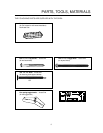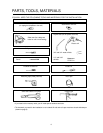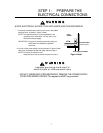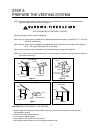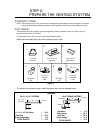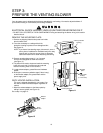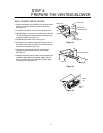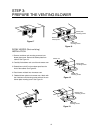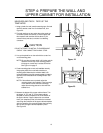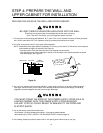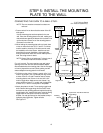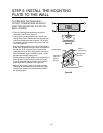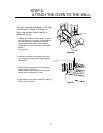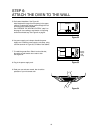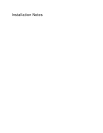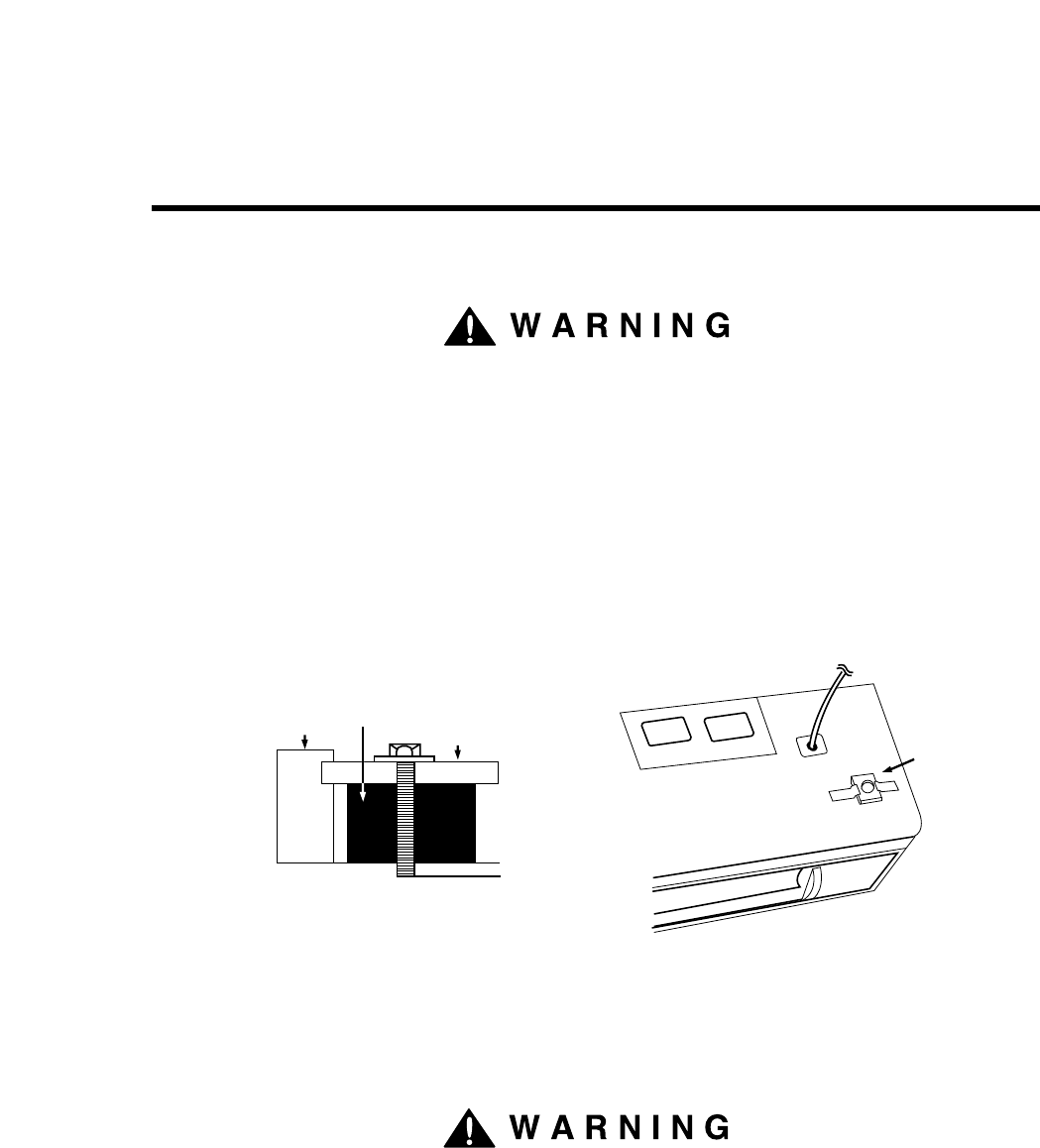
14
DRILLING THE HOLES IN THE WALL AND UPPER CABINET:
BE VERY CAREFUL WHEN DRILLING HOLES INTO THE WALL.
Electrical wires could be concealed behind the wall covering
and if the drill hits them you could get an electric shock.
1. Find the points on the mounting plate labeled A, B, C, and D. Drill a 3/16" diameter hole at any of these points that
are in front of a wall stud. Drill a 3/4" diameter hole at any of these points that are over drywall.
2. Drill a 3/8" hole at points J and K on the upper cabinet template.
3. Cut or drill a 2" diameter hole at the area marked M, “power supply cord hole” on the upper cabinet template.
If the upper cabinet is metal, you will need to cover the edge of the hole with the power supply cord bushing
(supplied) to prevent damage to the cord from the rough metal edge.
YOU MUST COVER THE EDGE OF THE POWER SUPPLY CORD HOLE IN
A METAL CABINET WITH THE POWER SUPPLY CORD BUSHING.
FAILURE TO DO SO COULD RESULT IN DAMAGE TO THE CORD AND
ELECTRIC SHOCK.
4. Cut out the venting areas (with the saber saw):
•
Roof-Vented: cut out the shaded area marked L on the upper cabinet template.
•
Wall-Vented: go to STEP 5, INSTALL THE MOUNTING PLATE, located on page 16.
5. Use caulking compound to seal the exterior wall or roof opening around the wall cap or roof cap.
STEP 4: PREPARE THE WALL AND
UPPER CABINET FOR INSTALLATION
Figure 24
Figure 25
cabinet front
filler block cabinet
bottom shelf
filler
block
NOTE: If the bottom of the upper cabinet is recessed 3/4" or more, you will need 2"x2" filler blocks (not included) to
provide additional support for the bolts. See Figure 24.
• Mark the center of each filler block and drill a 3/8" diameter hole at the mark.
• Align filler blocks over the two openings in the top of the microwave oven cabinet and attach to cabinet
with masking tape. See Figure 25.



